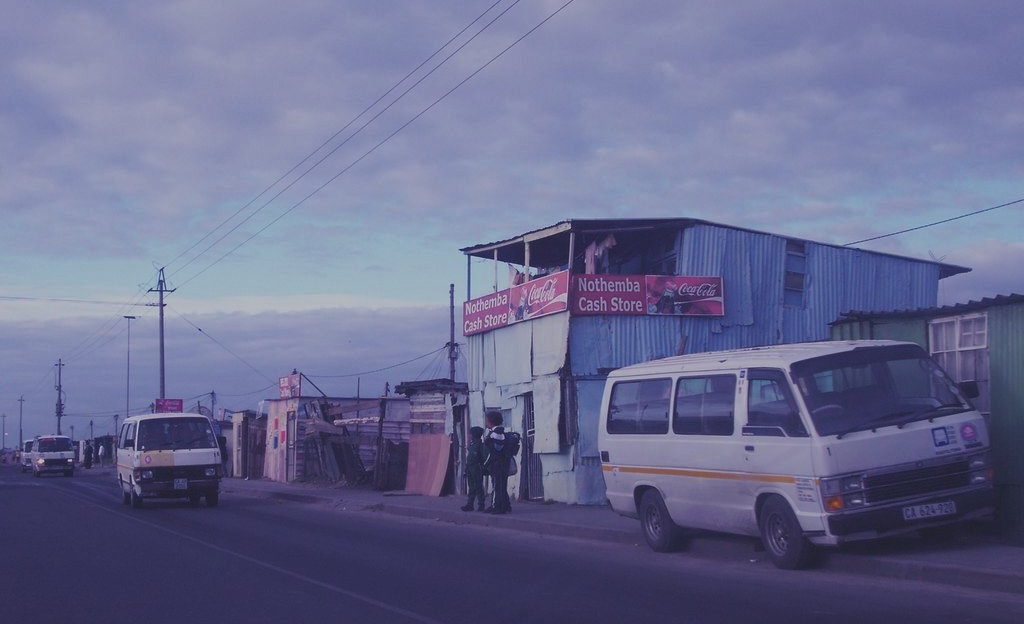 Literature, science fiction, and the fringe
Literature, science fiction, and the fringe
 Literature, science fiction, and the fringe
Literature, science fiction, and the fringe
by K. Sello Duiker

A Cape Town spaza at dawn.
K. Sello Duiker’s Thirteen Cents (2000) is an unnerving depiction of life as a street rat but just rattling off its sordid attributes [1] doesn’t do it justice. It’s not a heavy story. As Azure (a-zoo-ray), its 12-year-old narrator, would say: “it’s not like that.”
I can’t phone my relatives. They don’t care about me anyway. And I don’t miss them. I don’t miss them because they never gave me anything. And that’s all right, at least they didn’t give me bullshit like Cape Town grown-ups. I feel better when I say this. (pg. 105)
I had to look up a fair few slang and Afrikaans terms to follow along. Here’s my list:
| Term | Interpretation |
|---|---|
| Babelas | Hangover |
| Baksheesh | Money |
| Button | Quaalude |
| Goni | Knife |
| Kaffir | Black |
| Kak | Shit |
| Laaitie | Little brother figure |
| Mageu | Lightly fermented flour drink |
| Makwerekwere | Foreigners, other Africans |
| Moegoe | Fool |
| Moer | Beat |
| Moffie | Homosexual man |
| Naai | Fuck |
| Ouens | Guys |
| Piel | Dick |
| Poes | Pussy |
| Skollie | Petty criminal |
| Spaza | Informal township shop |
| Stop | Marijuana |
| Zol | Joint |
In more than a few ways, Thirteen Cents follows the same arc as J.M. Coetzee’s Life & Times of Michael K. A mentally incompetent youth loses his parents and has his naiveté taken advantage of by opportunists, black and white, around him. In response he journeys up a mountain and braves starvation to hold a rapturous communion with the spirit world.
For me, Thirteen Cents is the sharper novel, abstract at times but never foggy like Michael K. Nonetheless, you can’t go wrong with either — if you’re looking for a fucked-up story from a fucked-up place, the Rainbow Nation rarely disappoints.
[1] Sordid attributes including orphanhood, prostitution, destitution, pedophilia, drug abuse, rape, coercion, loneliness, and racial tension.
◂ prev: Jul 2023 |
A Fan's Notes
(1968)
by Frederick Exley
|